Trekking sounds fun and adventurous, but it can be challenging at the same time. It doesn’t matter if it is an easy or arduous trek; you’ve got to be physically and mentally fit. Suppose you are just mentally prepared, but your physical fitness isn’t suitable enough to meet the trekking requirements. In that case, you will only be left with regret and discomfort. Kuari pass is an easy-moderate trek, yet it requires you to be physically fit as it is at an altitude of 3,815 meters. Practising a proper fitness routine 2 to 3 months before the trek will ease trekking and help you get the most out of it. You need to practise breathing, cardio, strengthening, and other exercises to complete your trek with less exhaustion. Having said that, let us now look at the major reasons why you should be physically fit for the Kuari Pass trek.
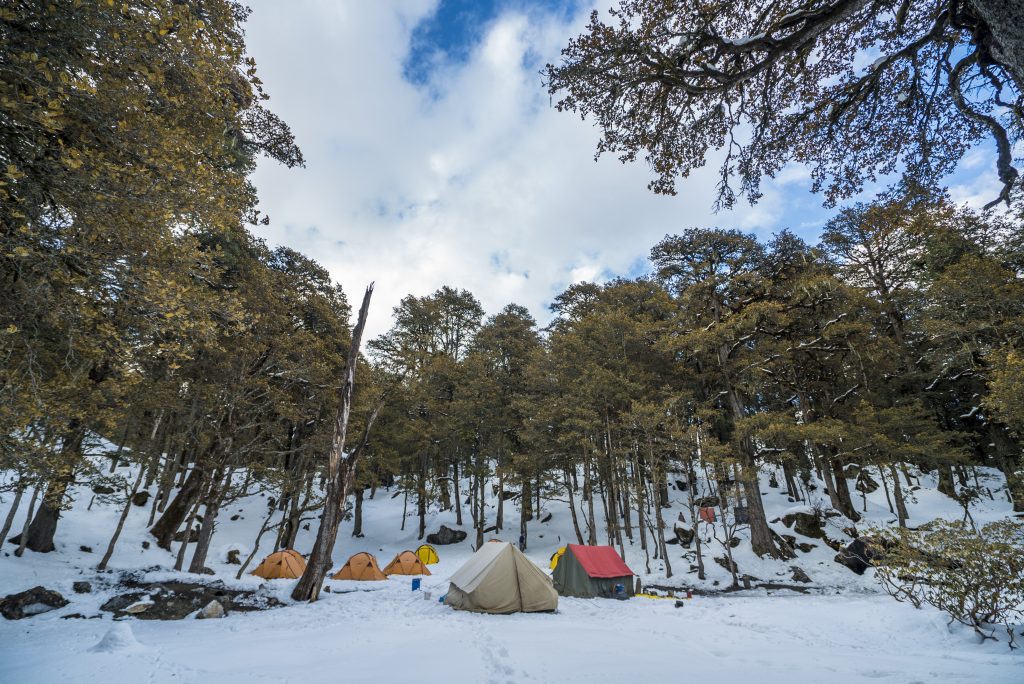
Reasons to be physically fit for the Kuari pass trek
- Air becomes thinner at high altitudes, and there is a lack of Oxygen due to low atmospheric pressure. The oxygen at 4,267 meters is 12% which is 21% at the sea level. Thus, your respiratory system (the tract and the lungs) must be fit enough to cope with such circumstances. Thus, you need to build cardiorespiratory endurance, which helps your Lungs and Heart perform better under stress.
- Trekking paths are covered with gravel, boulders, soft snow, hard snow, steps, glaciers, meadows, streams, rivers, etc. You may be required to train your body to maintain muscular balance and stability across these paths.
- As you walk continuously across the path, your heart needs to pump more blood per heartbeat. Thus, your heart muscles should be strong enough to take that kind of load.
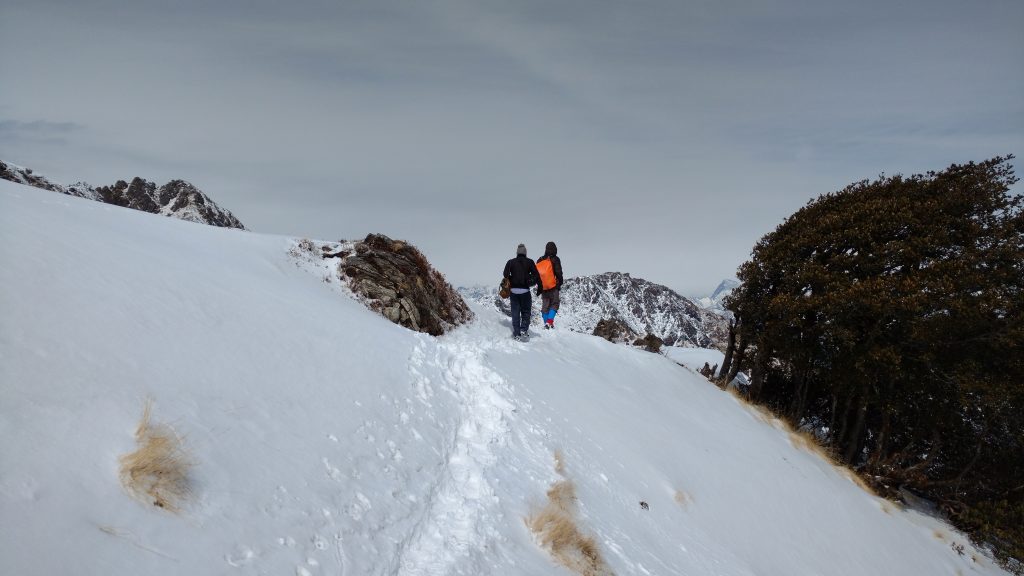
Exercises you need to practise to get fit for the Kuari Pass Trek.
Exercises for Cardiovascular endurance
- Running helps you with overall body fitness. It improves breathing, increases knee-ankle movement, and the surrounding muscles become more potent. It improves your blood circulation as well. Begin with running at least for 10 minutes in the initial practice days and gradually increase it to 30 mins a day. Take it into practice 3-4 months before your trek, and keep on improving your running target every week by 10%.

- Cycling is another excellent exercise to strengthen your cardiovascular system. Since your leg muscles are more likely to be strained while hiking, active cycling before a month could help ease your trekking experience by strengthening your calf and foot muscles. Cycling helps your heart, blood vessels, and lungs get a workout. It improves joint mobility, strengthens muscles, and increases cardiovascular activity. We recommend you cycle at least 30-45 minutes 5-6 days a week to improve your fitness.
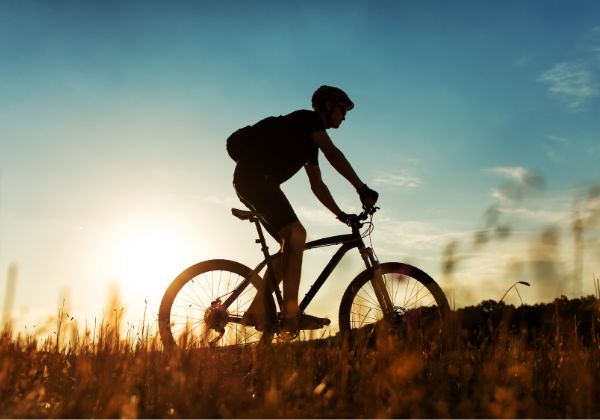
- Brisk walking is an excellent and easiest way to boost your cardiovascular fitness. Anyone can do it with no extra effort. Start with 3,000 steps a day and keep increasing the number to 10,000 steps a day. Practising walking is a must for every trekker. It boosts your energy levels and improves brain function as well. It improves your body’s overall functioning by improving muscle strength, joint movement, and breathing. You can mix walking with running.

Strengthening of muscles
To walk, climb, and run across the trek path, your muscles must be strong enough and provide good balance and support to your body. You can opt for any of the exercises mentioned below to strengthen your muscles. Doing at least three sets with ten reps could help you reach your target. Also, start these exercises 3 to 5 months before your trek date. You don’t need to be an athlete or a gym lover to perform these activities. These can be done by anyone from the comfort of their home.
-
- Squats target your lower body and strengthen your Quadriceps, calves, hips, and hamstrings. It also improves your balance and flexibility. If you are a beginner, you might find it difficult to do squats but fret not! Start with five squats with 3/5 sets and increase the numbers and repetitions. Add weights as you become stronger. It strengthens your skeleton, mainly the spine, and lower bones.
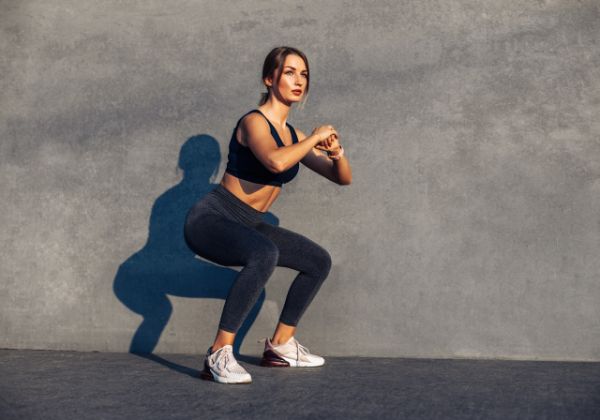
Squats - Lunges are another great exercise to strengthen and balance your lower body, including your thighs, Quadriceps, hips, and legs. They improve body coordination and boost flexibility. It also activates gluteal muscles with regular practice. Doing three sets of lunges twice a week can help you attain all the benefits mentioned above. Add weights as you become stronger.
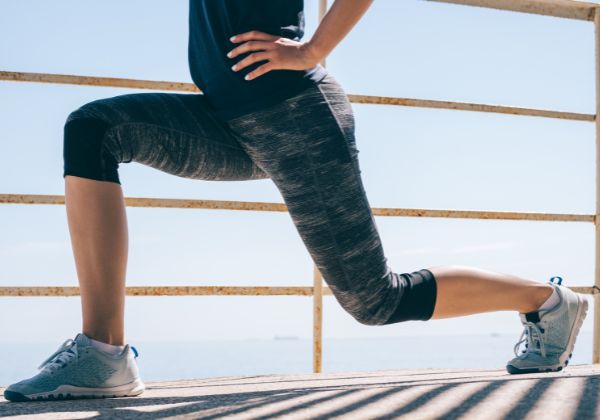
Lunges - Calf raises can make your legs sore (if done only once in a while), but they help strengthen your calves. It stabilises your feet and ankle, improves your entire body performance, increases your running speed, and improves your joint flexibility. Calf raises also prevent injuries while running.
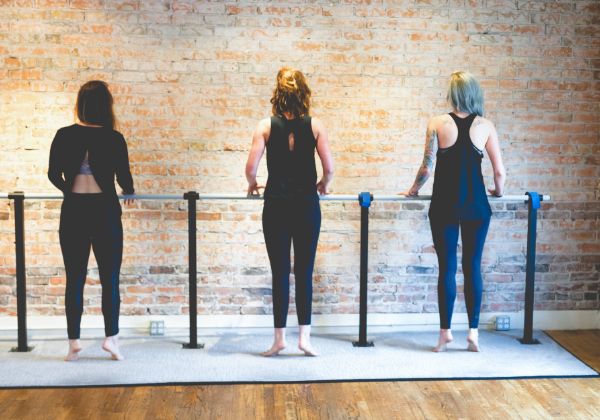
Calf raises - Plank focuses on your core muscles and gives us a well-aligned body. It is a bodyweight exercise that teaches our body to carry its weight easily. Doing three sets of planks of 30 to 60 seconds will be good. Do planks whenever you are doing cardio. Start a month before your trek to attain a well-balanced, strengthened, and flexible body.
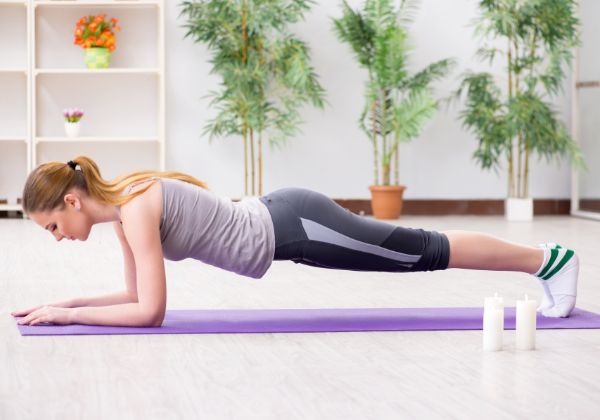
Plank - Knee tucks are another excellent exercise for your core body. It improves the overall endurance of your body and works on controlled movements. Your core, glutes, biceps, and anterior shoulders all come into play with this exercise. Do it the same, three sets with 10-15 repetitions regularly.

Knee tucks - Push ups – Push-ups target your chest, arms, shoulders and core body. These increase upper body strength and improve posture. They need no equipment and can be done at home. Usually, people with intermediate fitness perform 20-40 push-ups. Start with 3-4 sets of 10 push-ups and increase gradually.
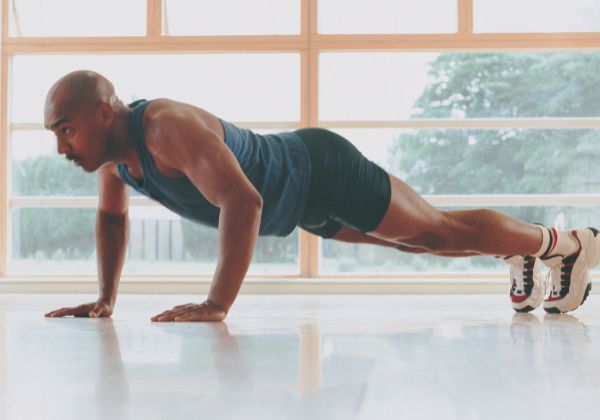
Push ups - Yoga – Yoga has numerous benefits. It enhances the strength, balance and flexibility of the body. It involves slow movements and deep breathing, which improves breathing and blood circulation. Yoga is also proven to relax your body to help you get better sleep. Regular yoga practice helps in both physical and mental preparation as it is believed to brighten up our mood with positive outcomes.
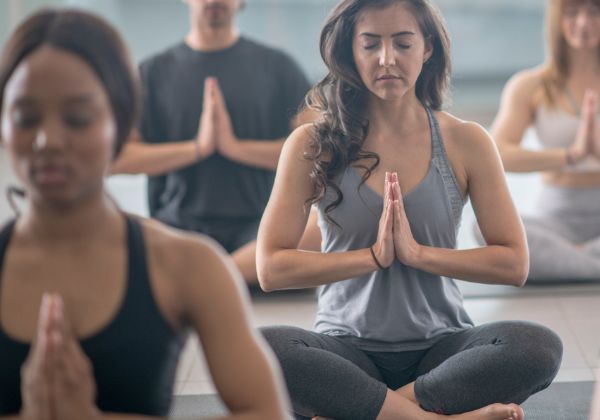
yoga
- Squats target your lower body and strengthen your Quadriceps, calves, hips, and hamstrings. It also improves your balance and flexibility. If you are a beginner, you might find it difficult to do squats but fret not! Start with five squats with 3/5 sets and increase the numbers and repetitions. Add weights as you become stronger. It strengthens your skeleton, mainly the spine, and lower bones.
Remember to warm up your body before starting any exercise, as warm-up acts to fuel your body. And remember, if you are a beginner and have never been to the gym, then you might find these exercises difficult, but trust us, they yield good results for Kuari pass trek. You might need four days to get habituated to exercise; post that, you will enjoy your workout routine. Keep your diet and weight under control, exercise may not help if your diet and weight are not in control. Have a sound sleep of at least 7 to 8 hours per night. Lack of sleep makes you feel exhausted all the time. Also, we suggest you check with your physician before undergoing any exercise regime.
A Few More Pointers before we say Goodbye!
- Yoga is an excellent option for those who don’t want to or cannot go to the gym. You can follow your yoga trainer and opt for yoga poses that suit your body’s needs.
- Also, practicing meditation is a great calming activity for your mind. It helps you prepare mentally and adds fuel to your hardcore activities.
- Remember, consistency is the key. You have to be consistent with whatever exercises you are doing. You cannot simply do it for two days and take a break of 4 days. Taking longer breaks in between will eventually be as if you are starting it all again.
- Try to exercise for 5-6 days in a week. Add a rest day post heavy workout or when you feel tired or have sore muscles.
We at Treknomads eagerly await to take you through the amazingly adventurous trekking journey. We want to see you all fit and mentally prepared for trekking; thus, we came up with this preparation blog. Hope to see you soon at Kuari pass trek and enthrall you with its marvellous beauty.
Useful blogs:
Top 5 reasons to choose winter Kuari pass Trek
Winter Trekking is Back- All You Need to Know!
